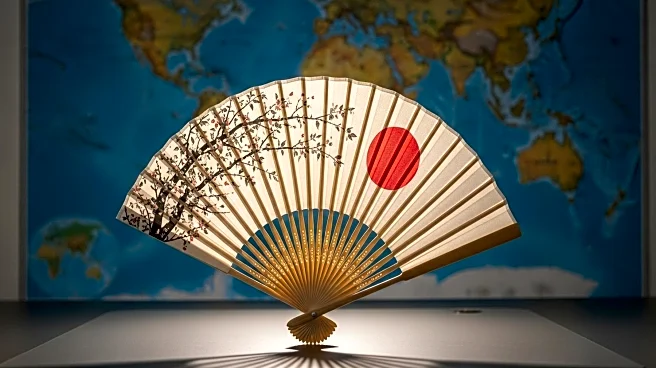What's Happening?
Japan's top trade negotiator, Ryosei Akazawa, has canceled a planned trip to Washington, D.C., intended to finalize a joint statement on a tariffs deal with the Trump administration. The cancellation comes as Japan urges the United States to expedite the implementation of the agreement. The deal, initially announced on July 22, involves a reduction of tariffs on Japanese goods from 25% to 15%, effective August 1. However, discrepancies in the agreement have led to additional tariffs, prompting Japan to request amendments to the presidential order to correct these reciprocal tariffs. U.S. Commerce Secretary Howard Lutnick has indicated readiness to finalize the deal, which includes Japan's commitment to invest up to $550 billion in the United States over the coming years.
Why It's Important?
The delay in implementing the tariffs agreement between Japan and the United States has significant implications for both countries' economic relations. The deal is crucial for Japan's export-driven economy, particularly its automotive sector, which faces high tariffs in the U.S. market. For the United States, the agreement represents a substantial foreign investment commitment from Japan, potentially boosting economic growth and job creation. The postponement of the trade envoy's trip highlights ongoing challenges in international trade negotiations and the need for clear communication and resolution of tariff disputes.
What's Next?
Japan is expected to continue pressing the United States for a swift resolution to the tariff discrepancies. The Trump administration may face pressure to amend the presidential order to align with the agreed terms, ensuring the reduction of tariffs on Japanese goods. The outcome of these negotiations could influence future trade relations and agreements between the two countries, impacting industries reliant on international trade.









